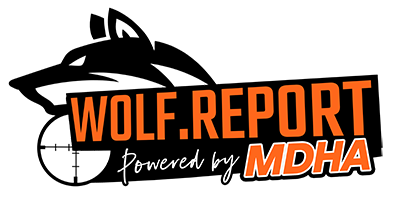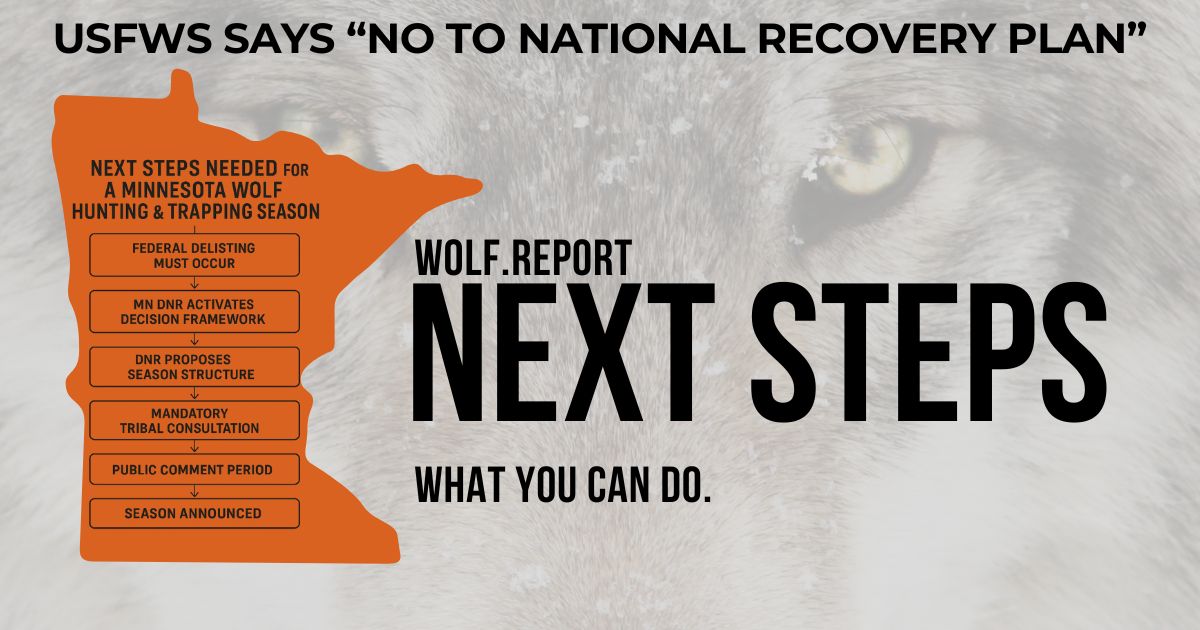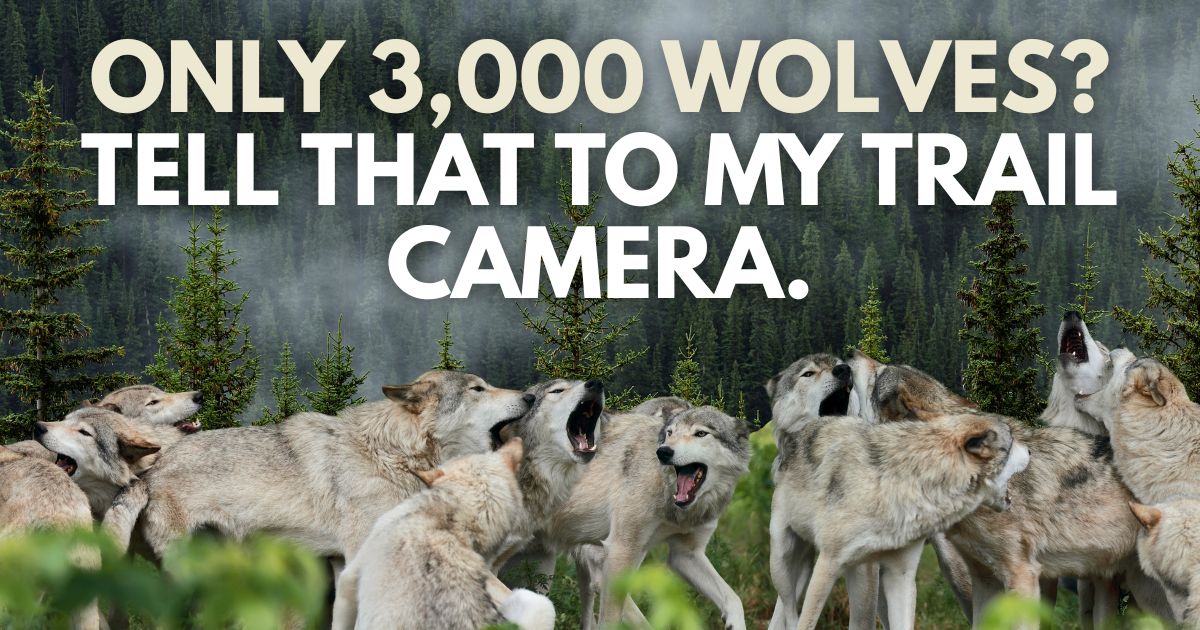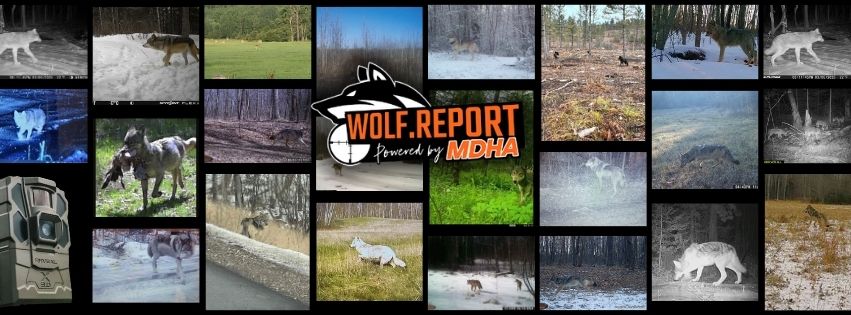

If you’ve spent time in the woods lately—whether you’re deer hunting, scouting, trapping, hiking, or checking the family cabin—you’ve probably noticed something: wolves are showing up more often, in more places, and on more cameras than ever. That’s exactly why Wolf Report exists.
Minnesota has one of the most stable wolf populations in the lower 48, and our state already has a full, science-based management framework in place. Yet despite that, Minnesota cannot currently hold a wolf hunting or trapping season because wolves remain under federal protection.
Every fall, hunters across northern Minnesota share photos from their trail cameras. Deer, bear, coyotes, the occasional moose — and more often than not, wolves. It’s no surprise anymore when someone says, “Seems like every other card pull has wolves on it.”
So why does it feel like there are wolves everywhere, when the Minnesota DNR says the state’s wolf population is roughly 2,700–3,000 animals?
Minnesota’s wilderness is home to one of the largest wolf populations in the lower 48 states—and while these apex predators are a natural part of the ecosystem, their growing numbers have raised serious concerns for Minnesota deer hunters. That’s why the Minnesota Deer Hunters Association (MDHA) helped launch the groundbreaking community science initiative: Wolf.Report.
Community science, also known as citizen science, turns individuals into contributors to scientific research. By reporting observations, collecting data, or sharing media like photos and videos, members of the public can assist with large-scale projects requiring extensive data collection.
For instance, think of global initiatives that track bird migrations, butterfly populations, or even urban pollution. These projects depend on one central idea: the power of many. When thousands contribute small pieces of data, they create an invaluable resource for scientists and policymakers.
At its heart, community science democratizes research. It allows laypeople to engage with science directly, creating awareness, broadening participation, and helping researchers access practical insights they may not achieve alone.




